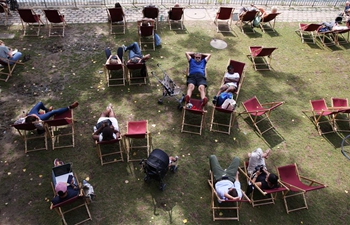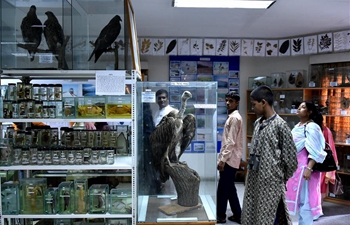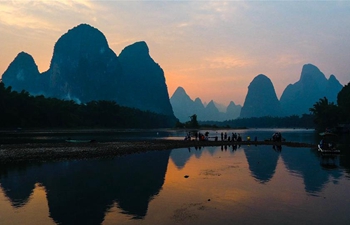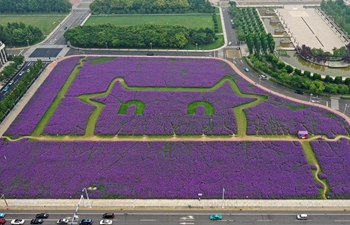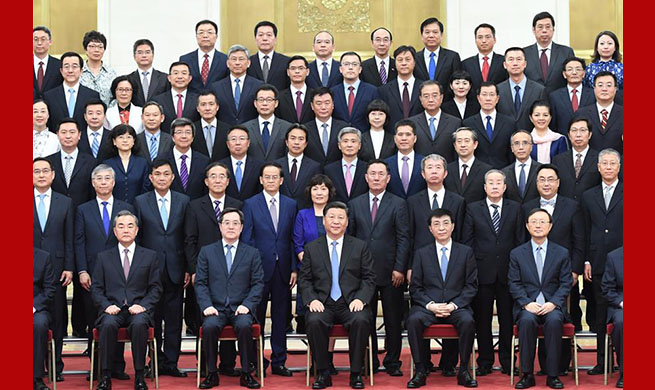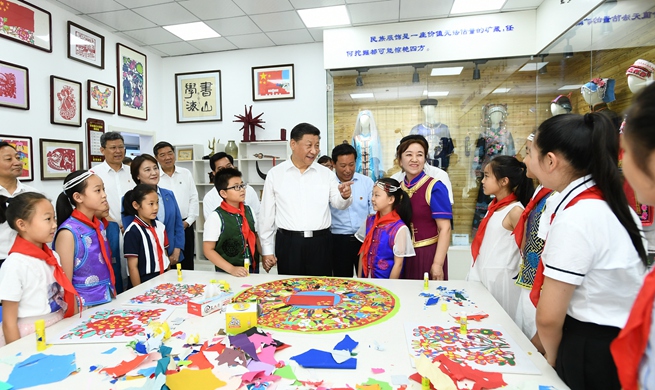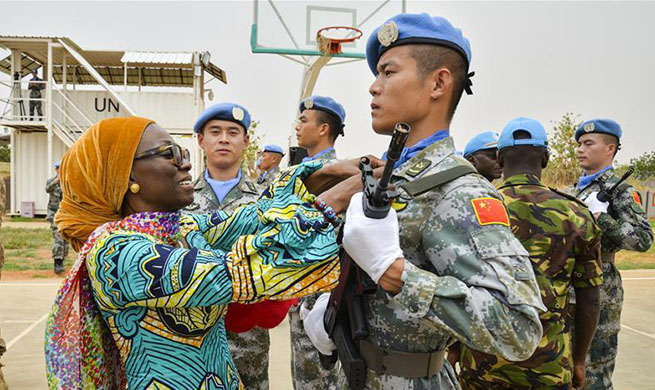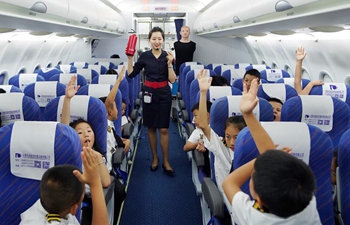SEOUL, July 19 (Xinhua) -- South Korea's presidential Blue House said Friday that not South Korea, but Japan violated international law regarding the forced labor of Korean people before and during World War II.
Kim Hyun-chong, deputy director of the National Security Office (NSO) of the Blue House, told a press briefing that it was wrong for Japan to continue asserting the South Korean violation of international law.
As the South Korean top court ruled that the 1965 pact did not involve individuals' right to compensation for crimes against humanity, Seoul cannot ignore nor repeal the rulings, Kim noted.
He said it was Japan that violated international law with illegal acts against humanity by forcing Korean people into hard labor without pay during the 1910-45 Japanese colonization of the Korean Peninsula.
His comments came after Japanese Foreign Minister Taro Kono said the South Korean top court's rulings cannot be acceptable and urged Seoul to rectify its violation of international law.
Earlier in the day, Kono summoned South Korean Ambassador to Japan Nam Gwan-pyo to lodge a protest against Seoul's negligence of Tokyo's offer to establish an arbitration panel, including a third country, to settle disputes over the wartime forced labor.
Japan claimed that the 1965 state-to-state accord, which normalized diplomatic ties between Seoul and Tokyo after the colonization, settled all colonial-era issues, but South Korea said the pact did not refer to individuals' right to compensation.
In an apparent protest against the court rulings, Japan tightened regulations early this month on its export to South Korea of materials vital to produce memory chips and display panels, which are the mainstay of the South Korean tech industry.
The NSO deputy director told reporters that although South Korea sought to resolve the forced labor issue through diplomatic channels with Japan and the dialogue efforts had yet to be concluded, Japan unilaterally slapped export restrictions on South Korea.
Kim said Japan's export curbs were an act damaging the free trade principle and the global value chain, noting that it was Japan that violated international law.
He stressed that Seoul was open to all constructive proposals as it prioritizes the diplomatic resolution of the forced labor issue, saying the resolution through the arbitration panel can negatively influence the bilateral ties and worsen public hostilities against each other as it takes long and brings a partial victory or loss in many cases.
Kim added that South Korea was ready to consult with Japan on ways to find a middle ground acceptable both to peoples of the two countries and the forced labor victims, urging Tokyo to immediately retract the export restriction.

